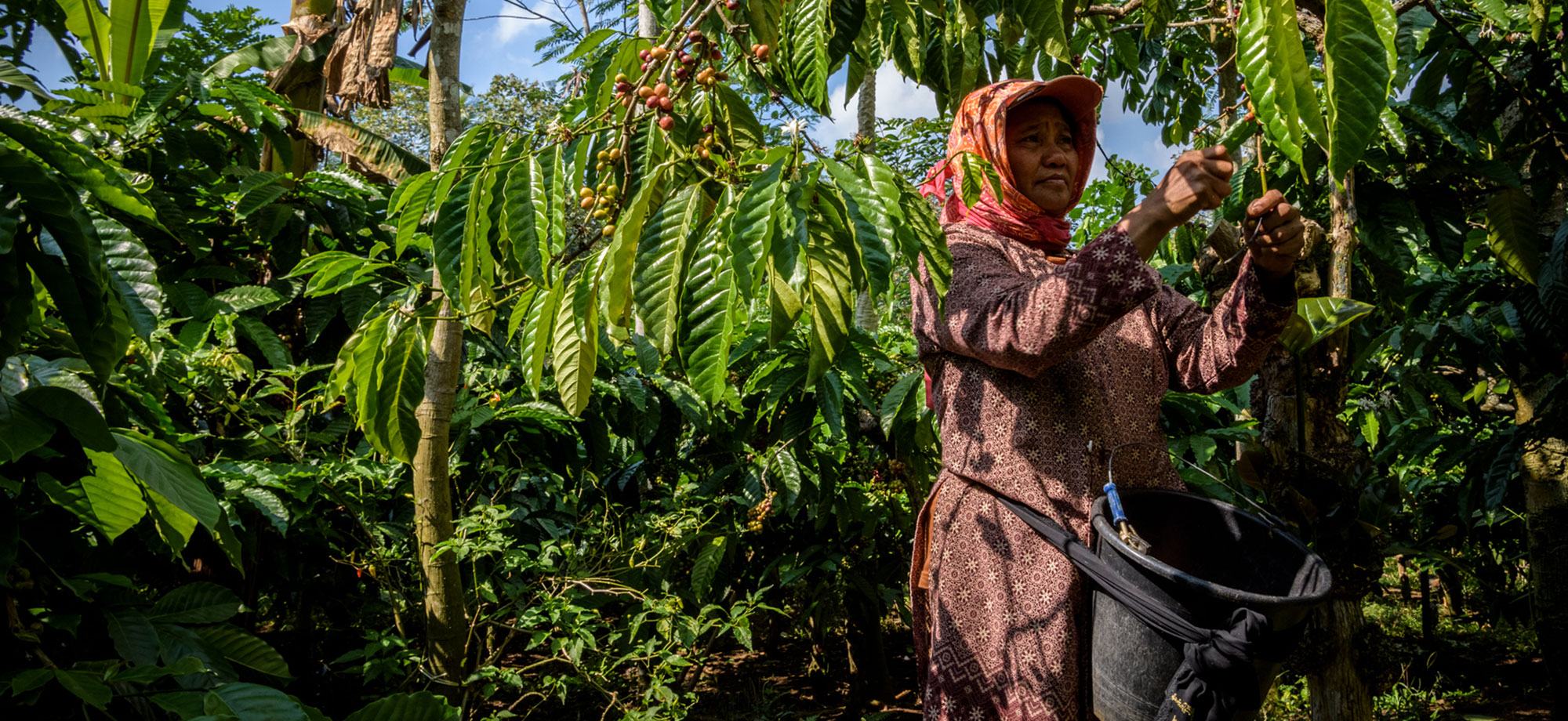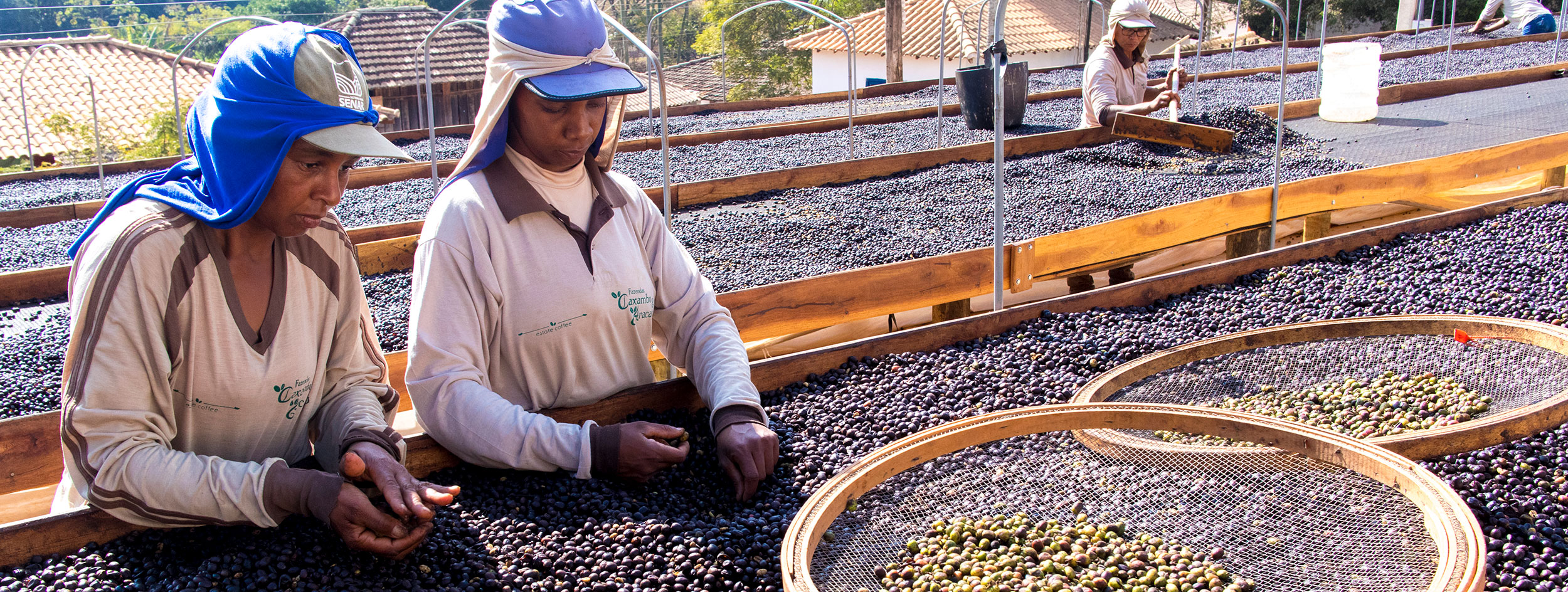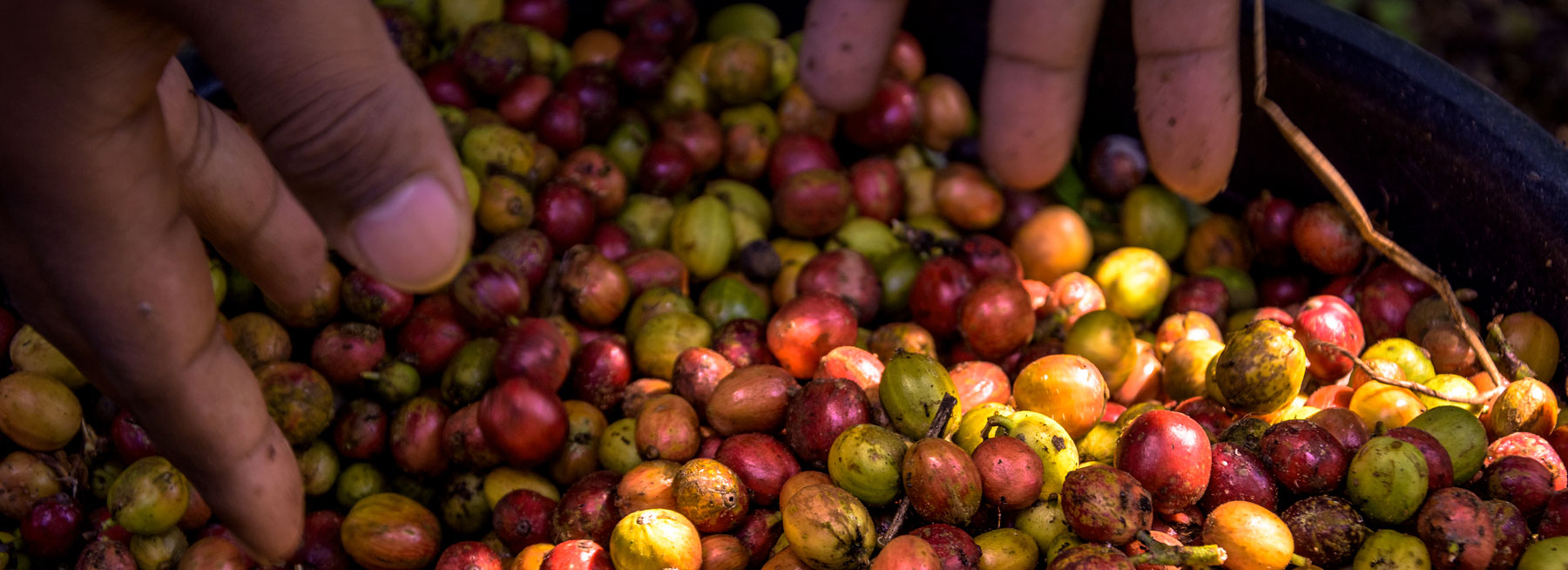Through its objectives, the Delta Project aims to bring added value to different target groups along the value chain (from farmers to retailers and brands) and beyond (governments and the sustainability sector).
1. Value proposition for farmers
Currently, coffee and cotton farmers are regularly providing performance data from their farm, as well as socioeconomic data on themselves and their family. Those datasets are used by other stakeholders of the value chain, by governments and researchers, but the results of the analysis or investigations are not shared afterwards with the famers.
Providing data is often time consuming for farmers and they hardly benefit from the data they produce. As a result, the reliability of the data collected is sometimes questionable.
Value proposition of the project for farmers:
- Feeding back aggregated data to farmers to provide them valuable information for decision-making and learning, from the data they have provided collectively. This information should be disseminated to them in a way that is understandable and meaningful for them. For example, show them (at group or cooperative level) how they compare to other groups, or other similar regions; or show the evolution of trends overtime, the effects of meteorological conditions on overall performance, etc.
- Through the uptake and re-use of open performance data, coupled with other data sources (weather, market prices, etc.), farmers will benefit from newly created or improved and better targeted services rendered by service providers along the supply chain (in the area of finance, agricultural extension, etc.). Moreover, farmers will be able to benefit from better targeted agricultural policies of local and national governments.
- By attributing quantitative sustainability information to their produce, farmers will potentially get awarded by the market for improved performance and will be further incentivized to improve sustainability performance.
2. Value proposition for governments and public sector
- A common measurement framework with standardized indicators enables governments to efficiently aggregate comprehensive information on the state of agricultural sector on national and sub-national levels. This helps to move from disconnected practice-based measures between competing Voluntary Standard Systems (VSS) to agreed outcome-based metrics and methodologies shared across collaborating VSS.
- Globally aligned sustainability metrics considerably facilitate national reporting into the SDGs and allow for comparison between countries.
The state of the agricultural sectors and their pace of improvement is comparable across commodities (initially coffee and cotton). - Comprehensive and standardized sector information facilitates evidence-based decision-making to streamline and target agricultural policies & services, for the benefit of farmers and ultimately the agricultural sectors at large.
3. Value proposition for private sector
Private companies, especially consumer-facing companies, are under increasing pressure to demonstrate the impact of their sourcing of raw material. This pressure comes both from governments (due diligence laws in France, the United Kingdom, the United States, that make multinationals increasingly accountable for their supply chains) and from the consumers, whose awareness is continuously rising, fed by scandals, with social media exacerbating reputational risk.
To answer the request on measuring their environmental impact, some companies have been using the Life Cycle Assessment methodology (LCA), which is useful to highlight key sustainability hot spots. However, it is not always adapted to complex agricultural contexts and it doesn’t take into account social or economic impacts.
Companies are looking for measurable metrics to prove the benefits of their sourcing practices and tools to report on their publicly communicated targets to source sustainably.
Furthermore, in order to enable coherence across their different sustainability engagements, there is a need to align with other existing industry initiatives and with the Sustainable Development Goals, that are now widely accepted.
The value proposition of the Delta Project is to reimagine sustainability performance to combine adoption of practices, outcome metrics, and publicly available data to enable better scrutiny of aggregated change over time and how SDG targets are being met. Standardizing this new sustainability framework to make it adaptable to several commodities will allow comparisons and clearer information for customers.
- Benefits for companies are generated at different supply chain levels. Related to the upstream supply chain, the Delta project enables companies to:
- Reduce data collection efforts at origin due to the aligned data requirements by different stakeholders.
Improve targeting of interventions for supplier performance improvement.
In their downstream supply chain, companies are enabled to:
- Provide standardised sustainability information to their customers as an added value to their products.
- Quantify their sustainability impact based and make credible claims on their sourcing behaviour, also through the use of Voluntary Standard Systems.
- Quantify their contribution to the SDGs, based on their commodity sourcing, and respond to (or be prepared for) legal and transparency requirements from end-consumers in terms of shelf product sustainability attributions.
While the current scope of the Delta Project encompasses two commodities, it bears the potential to be expanded to other (agricultural) commodities over time, such as cocoa, soy, palm oil, sugar.
The Delta Project, with an aligned measurement framework of sustainability outcomes, enables sustainability standards to:
- Provide a strong added value to their customers (see value above propositions especially for producers and businesses).
- Quantify their impact related to SDGs.
Compare, aggregate and exchange their contribution to SDG and their impact in general. - Take a globally leading role to frame the global sustainability discussion and directions as a group.




